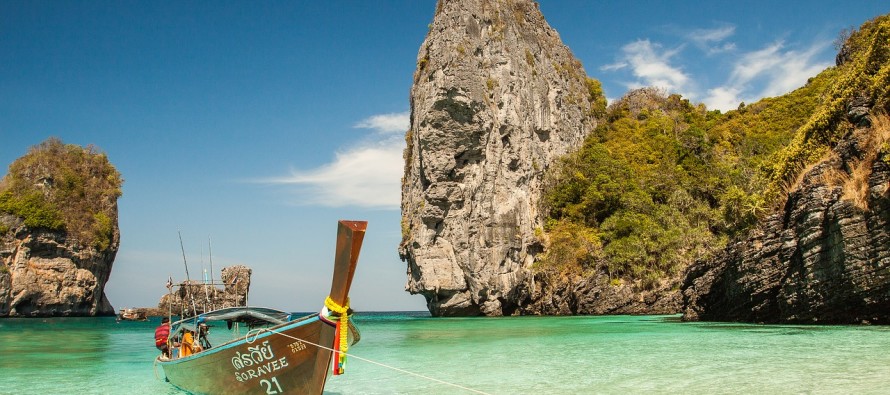Unpacking financial emigration

Related Articles
Tim Mertens | Sovereign Trust
Investing in an off-shore retirement plan can be a tax-efficient way of preserving and growing wealth – but it can also be risky
Financial emigration, also known as formal emigration, is the process whereby a South African resident changes their status with the Reserve bank to that of a non-resident. One of the most important benefits of this is that retirement savings and annuities can be withdrawn and transferred offshore, even if the person is still under the age of 55. Another benefit, of particular interest to South Africans, is the protection that this offers from currency volatility.
T im Mertens, chairman of the South African arm of the Sovereign Group, which provides trust and fiduciary services and pension products in Guernsey, the Isle of Man, Gibraltar and Malta, says that financial emigration has inherent benefits, like certain tax exemptions, but can also be fraught with tax-related, and other, risks if not done hand-in-hand with professional, respected service providers.
im Mertens, chairman of the South African arm of the Sovereign Group, which provides trust and fiduciary services and pension products in Guernsey, the Isle of Man, Gibraltar and Malta, says that financial emigration has inherent benefits, like certain tax exemptions, but can also be fraught with tax-related, and other, risks if not done hand-in-hand with professional, respected service providers.
“When considering moving your assets off-shore, it’s critical that you explore the tax efficiency of the recommended structures. You need to understand their nature, including where they are domiciled and whether they are approved by a regulator, and the costs. You also need to understand how your money will be invested and whether the investment strategy will enable you to achieve your goals. The professionals who advise you must be knowledgeable about legislation in more than one jurisdiction, and the advice must take your overall financial circumstances, tax position and estate planning, into account.”
Mertens often advises clients asking about financial emigration to use their foreign investment allowance to contribute to an international retirement scheme that can generate future retirement benefits that can be paid anywhere in the world, including in South Africa, that would currently be considered a tax-free pension.
The Sovereign Group offers a pension product, called a Conservo, which falls under Guernsey’s regulated international retirement annuity trust schemes (Rats). “Your investment can be a regular contribution and/or a lump sum that was earned outside South Africa, or you can use your foreign investment allowance. However, you cannot claim your contributions to a Rat as a tax-deduction, as you can with contributions to a local retirement annuity fund, because the Guernsey fund is not registered under the Pension Funds Act in South Africa,” says Mertens.
The foreign investment allowance is currently R10 million (discretionary) and R1 million (travel) but you can apply to SARS for dispensation to increase this. Mertens says money invested in discretionary trusts is increasingly coming under scrutiny from international tax authorities. But, with Conservo, your money is held in a segregated account, along with the segregated accounts of other investors, under a Master Trust Deed. Also in Conservo’s favour is the fact that Guernsey is underpinned by the regulation of the Guernsey Financial Services Commission (GFSC), and is widely recognised as one of the world’s leading offshore financial services centres. The island is home to many of the financial services industry’s largest and well respected financial services institutions and is on the Organisation for Economic Co-operation and Development’s (OECD’s) ‘white list’ of countries that are committed to a fair and transparent tax system. Guernsey-based Sovereign Trust also has the expertise of the Isle of Man-based Pentech International Financial Advisor Support Programme at its disposal.
“As a tax-efficient destination for foreign investments, Conservo is a multi-member retirement plan that based off-shore in our Guernsey office, and run by trustees,” says Mertens. “During the life of the plan, there’s no tax in Guernsey and, if the amount you draw down and bring back into South Africa doesn’t exceed your capital investment amount, there’s no current liability tax here in South Africa either.”
While protecting your wealth in a stable environment, Conservo is flexible, gives you options for planning, and allows you to take advantage of your SARS allowance. It also shields you from tax and enables options down the line.
Mertens says that the advantages of Conservo include:
- The portfolio can hold a wide range of investments, including shares in listed and private companies, derivatives, and physical assets, such as art.
- The investment returns are tax-free.
- You have the freedom to decide where to invest.
- You can invest in any currency.
- You can choose the underlying investments and an investment adviser.
- It is more cost-effective and transparent than an offshore discretionary trust.
- There is no requirement to buy an annuity (pension); you can take payments as a lump sum.
- You can start to draw down on your investment from the age of 55.
“Funds invested into Conservo are also portable. So, if you move elsewhere in the world you can still draw down on it, but you should get advice from the tax authorities in your country of residence,” concludes Mertens.
Tim Mertens is the chairman of Sovereign Trust.



